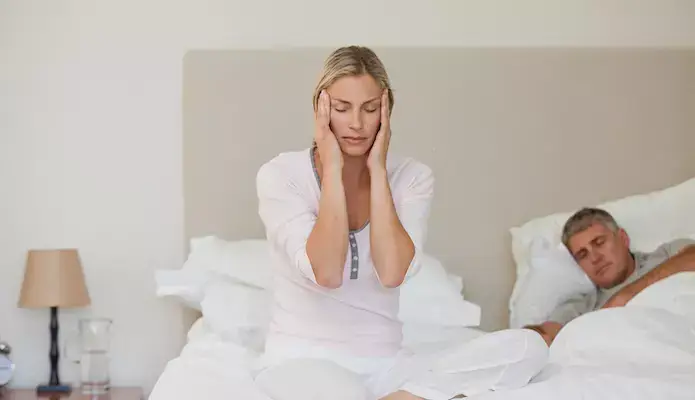Why Treating Sleep Apnea is Important: Understanding the Dangers of Sleep Apnea
Sleep apnea is a severe disorder where you experience shortness of breath during sleep. It is caused by the airway becoming blocked. At the same time, a person is asleep, resulting in breathing difficulties that can lead to significant health complications. Sleep apnea is more common than you may think and affects over a million individuals worldwide, and it is essential to know how to get a diagnosis and treatment for this condition. This blog post will discuss why treating sleep apnea is necessary and why you should seek medical attention if you think you may have this issue.
Reasons Why Treating Sleep Apnea Is Important
May Increase High Blood Pressure
Sleep apnea can increase a person’s blood pressure because of the stress it puts on your heart. As a result, untreated sleep apnea can lead to hypertension, which can worsen your overall health. High blood pressure can strain your body and increase your risk of heart disease, stroke, and kidney failure.
Can Affect Your Mental Health
Individuals with sleep apnea often wake up feeling tired, irritable, and depressed. This tiredness is because the condition affects the body’s ability to get proper restorative sleep, which leads to decreased concentration, memory, and mood swings. Sleep apnea can also lead to anxiety disorders, affecting your daily life.
May Worsen Respiratory Problems
Sleep apnea can aggravate respiratory conditions such as asthma, chronic bronchitis, and emphysema. These conditions can all worsen sleep apnea, leading to a cycle that is hard to break.
Sleep Apnea And Obesity Are Linked
Sleep apnea is more common among unconditioned, overweight, and obese people because obesity can lead to the accumulation of excess fat around the individual’s neck that obstructs airflow during sleep. Research studies have shown that losing weight may reduce the severity of sleep apnea and lead to an overall improvement in health.
Can Increase The Risk Of Accidents
Individuals with sleep apnea are more likely to fall asleep during the day, making them more prone to accidents while driving or operating heavy machinery. Losing sleep can be particularly dangerous for those in certain professions, such as long-haul drivers, pilots, and factory workers.
Sleep apnea requires therapy. The great news is that effective treatments help you breathe easier, sleep better, and feel energized throughout the day. If you think you may have sleep apnea, contact our highly trained sleep apnea doctor, Dr. Brian McDowell, DDS to avoid any further health complications. Remember, a good night’s sleep is essential for maintaining good health and quality of life.

 Are you struggling to get enough sleep? Do you wake up tossing and turning? Are you frequently tired during the day? Or are your loved ones complaining about snoring? If so, you may be suffering from sleep apnea.
Are you struggling to get enough sleep? Do you wake up tossing and turning? Are you frequently tired during the day? Or are your loved ones complaining about snoring? If so, you may be suffering from sleep apnea. A nightguard is an oral device worn while sleeping to protect your teeth and jaw from clenching and grinding. Over time clenching and grinding can cause unnecessary wear on the teeth, sometimes leading to chips, cracks, and even tooth loss.
A nightguard is an oral device worn while sleeping to protect your teeth and jaw from clenching and grinding. Over time clenching and grinding can cause unnecessary wear on the teeth, sometimes leading to chips, cracks, and even tooth loss. If you have ever woken up with a sore jaw, sensitive teeth, or a headache, you might have experienced bruxism. Bruxism, teeth grinding, is a condition where an individual grinds, gnashes, or clenches their teeth, typically unconsciously. Understanding the relation between
If you have ever woken up with a sore jaw, sensitive teeth, or a headache, you might have experienced bruxism. Bruxism, teeth grinding, is a condition where an individual grinds, gnashes, or clenches their teeth, typically unconsciously. Understanding the relation between  Everybody gets bad breath at times. But for people with chronic bad breath, it can indicate something more serious, like gum disease or a tooth infection. Brian C. McDowell, DDS can help treat the underlying causes of bad breath so you can enjoy fresh breath and a clean taste in your mouth.
If you are looking to treat chronic bad breath in Fitchburg, call our dentist, Dr. Brian McDowell at call
Everybody gets bad breath at times. But for people with chronic bad breath, it can indicate something more serious, like gum disease or a tooth infection. Brian C. McDowell, DDS can help treat the underlying causes of bad breath so you can enjoy fresh breath and a clean taste in your mouth.
If you are looking to treat chronic bad breath in Fitchburg, call our dentist, Dr. Brian McDowell at call